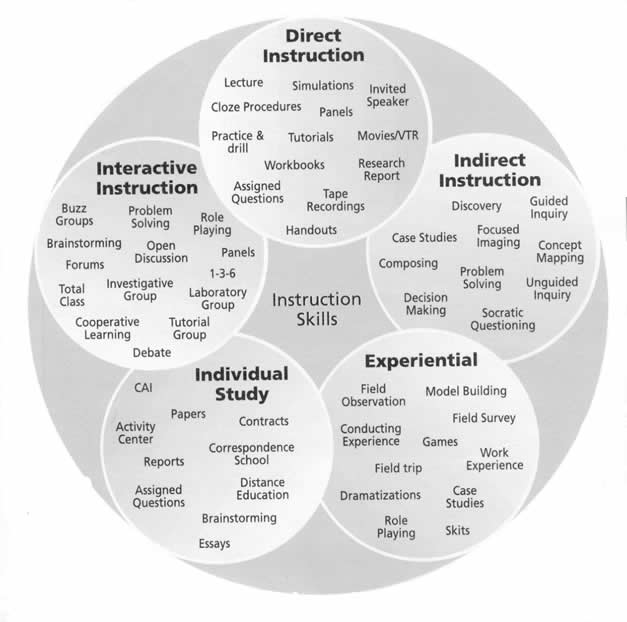Summary and Relfections

Description: Instructional strategy
Image copyright: http://www.sasked.gov.sk.ca/docs/native10/images/Image18.jpg
Interactive Strategy - Role Playing:
http://olc.spsd.sk.ca/de/pd/instr/strats/roleplaying/index.html
- When students role-play they act out a certain character in a situation. It helps the students to understand and think about things from a different perspective.
- I think role-playing is an excellent instructional strategy to use with students because it really helps them to get into what they are learning and be a real part of it. I think it would also motivate students to get involved and want to play certain characters in a situation.
Experiential Learning – Field Trips:
http://olc.spsd.sk.ca/de/pd/instr/strats/roleplaying/index.html
- Field trips take place outside of the classroom and provide learning opportunities within the community. It provides students with real life interactions and opportunities to visit places they may not visit often.
- I think field trips are a great opportunity for students to learn in and from the real world. It provides students to learn and use social skills and how to member of the community. Whether it be to the zoo to learn about animals or to Wal-Mart to buy toothpaste and practice math skills it would be exciting for the students because they are getting out of school and practicing skills they need as a young adults.
Instructional Skills – Level of Questions:
http://olc.spsd.sk.ca/de/pd/instr/indepen.html
- Level of Questions promotes higher and deeper levels of thinking. It challenges students and provides them with opportunities to answer different level of questions.
- As a teacher in the elementary grades, Level of Questions is an important Instructional strategy to teach students. In early years students need to gain and acquire skills for thinking and deeper understanding of what is presented to them. This will help them as move into the older grades and are answering even higher level of questions. It will really prepare them for the real world as well and to think about things on different levels.
Instructional Strategy – Blogs:
http://www.beesburg.com/edtools/glossary.html
- Blogs are online journals created by anyone to share thoughts and feelings on
a wide array of topics. They have had a great impact in education and the
way we use blogs to teach and helps students to learn.
- I have learned so much about blogs throughout my classes in Computer
I could use blogs for students to view and complete assignments and I could
also have students work together or create their own blogs as an assignment
after learning about a certain topic. Blogs also help students to practice
computer and keyboard skills.
Instructional Strategy – Find Someone Who:
http://www.beesburg.com/edtools/glossary.html
- Find Someone Who is a variation of a scavenger hunt, where students have to find answers to questions from other students. Students have to ask each other questions to find who has the answer they are looking for.
- This is a way to get students out of their seat and actively engaged in the lesson. This also helps them to practice social skills, memory and makes them responsible for their learning.
Independent Strategy – Journals:
http://www.beesburg.com/edtools/glossary.html
- Journals can be worked on daily or at the end of a unit and shares the student’s thoughts and feelings. Journals promote students to reflect on what they just learned, as well as practicing handwriting skills.
- I think my students would benefit from using journals. I would have them write a brief journal about what we just learned, what they got out of it, what really engaged them and what did not work for them. This would help me to know what words for them and how I can change my instruction to benefit my students.
Instructional Strategy - Luck of the draw:
http://www.beesburg.com/edtools/glossary.html
- Luck of the draw is when all students names are in a container at one name is chosen at the end of the day for that person to present a brief review of what they learned the previous day.
- I think while this can give students a little anxiety it can be a very beneficial Instructional Strategy. It makes the students responsible for their learning because they have to be paying attention throughout they day to be able to retell the next day and it makes them responsible because they have to give that information back to their class. Even though most of the students were probably present the previous day, there will be on occasion that a student was out and they can find out what they missed. It will also help them with public speaking and social skills.
